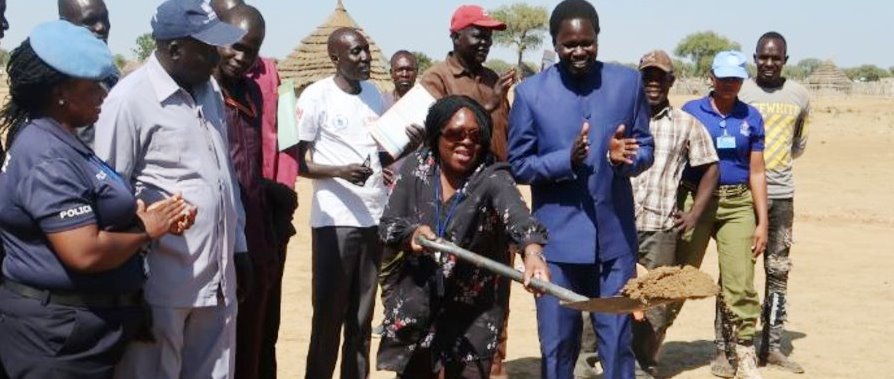The United Nations Mission in South Sudan (UNMISS) said it has broken ground on the project to build a six-room courthouse in Twic State.
The United Nations Mission said on its website that the new courthouse will be constructed over the next three months at a cost of just under USD$50,000.
“This is a dream come true,” said Twic High Court President, Bol Ayuel, at an event launching the project earlier this week. “We have been waiting so long to have a courthouse that will enable us to keep our records and speedily dispense justice to our people.”
The project is being implemented by a local non-governmental organization, the Lukluk Community Association for Development (L-CAD) and funded by UNMISS through its Quick Impact Project scheme.
Judge Bol Ayuel said the lack of a courthouse had created serious problems for local authorities trying to restore the rule of law in Twic.
“Some of us have cases pending for trial but we can’t get a judgment swiftly and impartially because there is no courthouse for judges to sit and hear our cases. We are also many times told that the records of our cases cannot be located due to lack of a proper record-keeping system,” said Twic resident, Ayol Deng.
Turalei Commissioner Samuel Mawein agreed that the lack of adequate facilities for various parts of the governance system was limiting the ability of local authorities to carry out their responsibilities.
“Lack of adequate space to accommodate our government functionaries, including the judiciary has been our major handicap in this region,” he said.
UNMISS Relief Reintegration and Protection officer, Jane Frances Nankaayi, said while the court would serve the needs of all citizens, it would be particularly beneficial for women who would finally have access to justice, particularly in cases of domestic violence and rape.
“UNMISS is sponsoring this judicial project to help promote the rule of law, support peace and discourage inter-communal violence through speedy delivery of justice to those affected by violent conflict,” she said.




